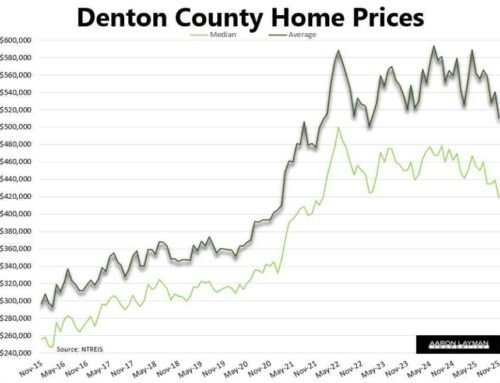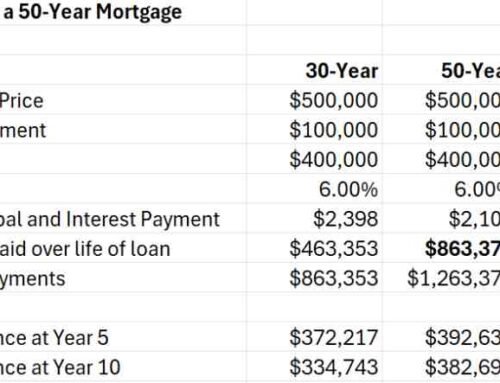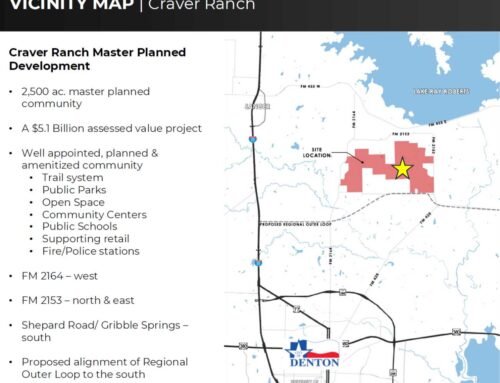Dallas home prices are expensive, and builders are finally getting the message. That’s the news from the most recent data on home starts in the DFW area, which reportedly surged in the 3rd quarter. Builders reportedly started 8,853 single-family homes in the DFW metroplex. For the 12 months ending in September there were apparently 32,234 permits recorded. This was the highest total in a decade. More interestingly, builders’ starts for houses under $500,000 rose by 14.5% during the past year.
Builders are finally waking up to the fact that the Dallas Fort Worth housing market is overheated. You can call it echo bubble 2.0, overextended or whatever you want, but the simple fact is that home price growth in the DFW area has eclipsed wage growth by a much larger percentage during the past 5 years. This is putting a strain on potential home buyers, and builders are beginning to hear about the lofty levels of Dallas home prices. How we arrived at this juncture is not really a mystery. Dallas home prices have the the Federal Reserve’s fingerprints all over them.
“The Federal Open Market Committee (FOMC) expects their interest rate decisions to change the economy because they expect the Effective Federal Funds (EFF) rate implemented at a trading desk at the New York Federal Reserve Bank to consistently cascade across credit classes from Treasury Bills to business and consumer borrowing.”
Unfortunately it has not worked out that way, and the real economy has suffered as as the transfer mechanism has been broken, thus reducing the benefit to borrowers. In Layman’s terms, the Fed destroyed price discovery along with credit spreads and now all we have are asset bubbles. During the last few years, Dallas has been attracting tons of capital (aka Fed liquidity) looking for a place to roost. With relatively affordable real estate and a healthy economy, Dallas and the greater DFW area was an obvious landing spot for some of the Fed’s $4.5 trillion balance sheet which they supposedly now want to “normalize’. Leave it to the Fed to be late to the party.
For several years now home buyers have been left in the dust when it comes to wage growth even as home prices spiral higher. Dallas home prices are now well above the previous peak prior to the housing crisis. House price inflation in the Dallas area has easily outpaced wage gains, and this is factoring in one of the best job markets in the U.S. in recent years. Why this is happening is not rocket science, no matter how complex some economists would like to make it seem. As the NYT muses…
“Why wages are not rising faster amounts to a central economic puzzle.”
Actually it’s not a puzzle at all. There is a reason we have laws against counterfeiting, yet somehow economists are “puzzled” by the broken transmission of our current economy. These supposedly intelligent PhD’s can’t seem to understand that when the central bank of the United States prints three and half trillion and then some out of thin air and injects it into the banking system (a cornucopia of criminal enterprise), that some how that new liquidity is not making it into the real economy to stimulate wage growth and productive investment. So much for the dismal science!
“D” is for Debt
To ignore the fact that the Fed and the FOMC have distorted home prices across the U.S. is to risk your heard-earned money and equity (assuming you have some). Home builders are increasingly getting pinched at the margins as they try to find any affordable land to develop and build houses, houses that people with real paychecks will be able to afford. For the last few years, Dallas Texas has been fortunate to escape a downturn with a mix of domestic investment and a relatively healthy job market. Now that the Fed is putting the brakes on reinvesting those maturing securities and potentially hiking rates further, things are going to be a bit more challenging.
We saw what happened to the housing market in Houston when oil prices collapsed a few years ago. That was just one asset bubble facilitated by the Fed’s easy-money policies and balance sheet expansion. It would be foolish to think that Dallas will somehow erase the Fed’s fingerprints on home prices without some mean reversion taking place. It appears new home builders are finally coming to grips with the reality that not everyone can afford a $500,000 home in the DFW metroplex. That is a good thing. Unfortunately there will likely be more stagnation ahead unless wages in the Dallas area somehow match the impressive growth we have seen in DFW home prices.
How this all plays out is anyone’s guess. The useful tools at the Fed certainly don’t know. They have proven as much. Their consistent service to Wall Street and the criminal banking system they are supporting leaves them with little credibility when it comes to monitoring and controlling bubbles in the U.S. economy. If you think Janet Yellen or the next Fed chair is any different than Bernanke, or Greenspan before him, tread carefully.
“We’ve never had a decline in house prices on a nationwide basis. So what I think is more likely is that house prices will slow, maybe stabilize,might slow consumption a bit. I don’t think it’s gonna drive the economy too far from its full employment path, though.” (2005) Ben Bernanke – Former Chairman of the Federal Reserve
On a final note as it relates to home prices, mortgage interest rates have perked up a bit in the past few weeks. That doesn’t mean they are going to climb significantly higher any time soon. It all goes back to that “D” word above. The Fed has painted itself into a corner, and the spiraling federal debt is prohibitive to higher rates. But don’t take my word for it. There are guys smarter than me monitoring the situation. Dr. Lacy Hunt does an excellent job of explaining why mortgage interest rates could be low for quite some time in his latest third quarter review.
The Fed wants to raise interest rates, and commence with quantitative tightening (i.e shrinking or “normalizing” their balance sheet) this year. If the Fed were to continue their projected tightening effort through 2018 the treasury yield curve could actually invert with shorter term yields rising above longer term yields. Mortgage rates are based on those longer term treasury yields and real inflationary expectations. The more the dope dealer (the Fed) tries to remove the heroin from the addict (U.S. economy, Wall Street etc) the closer we get to a real recession.
Remember that there are plenty of Realtors who will tell you that the sky is the limit. Every day is a great day to buy a home, etc. etc. History suggests otherwise, and that means buying a new home demands more diligence than ever before. If you are in the market for a new home in the DFW area, I would welcome the opportunity to assist you. Good, objective advice seems to be in short supply these days, but I’ll keep doing my best to tell it like it is.
Aaron Layman
broker/owner Aaron Layman Properties










Leave A Comment